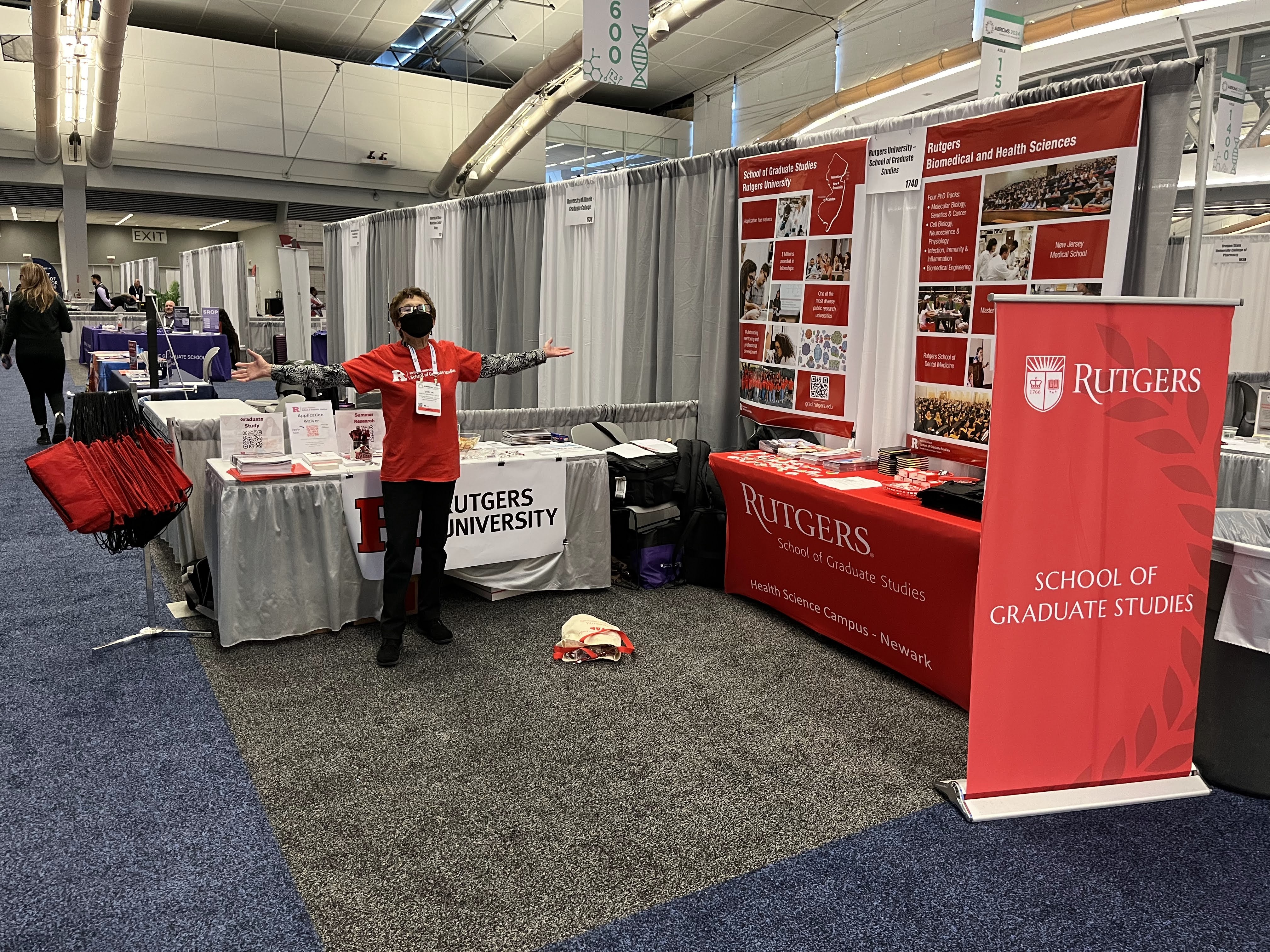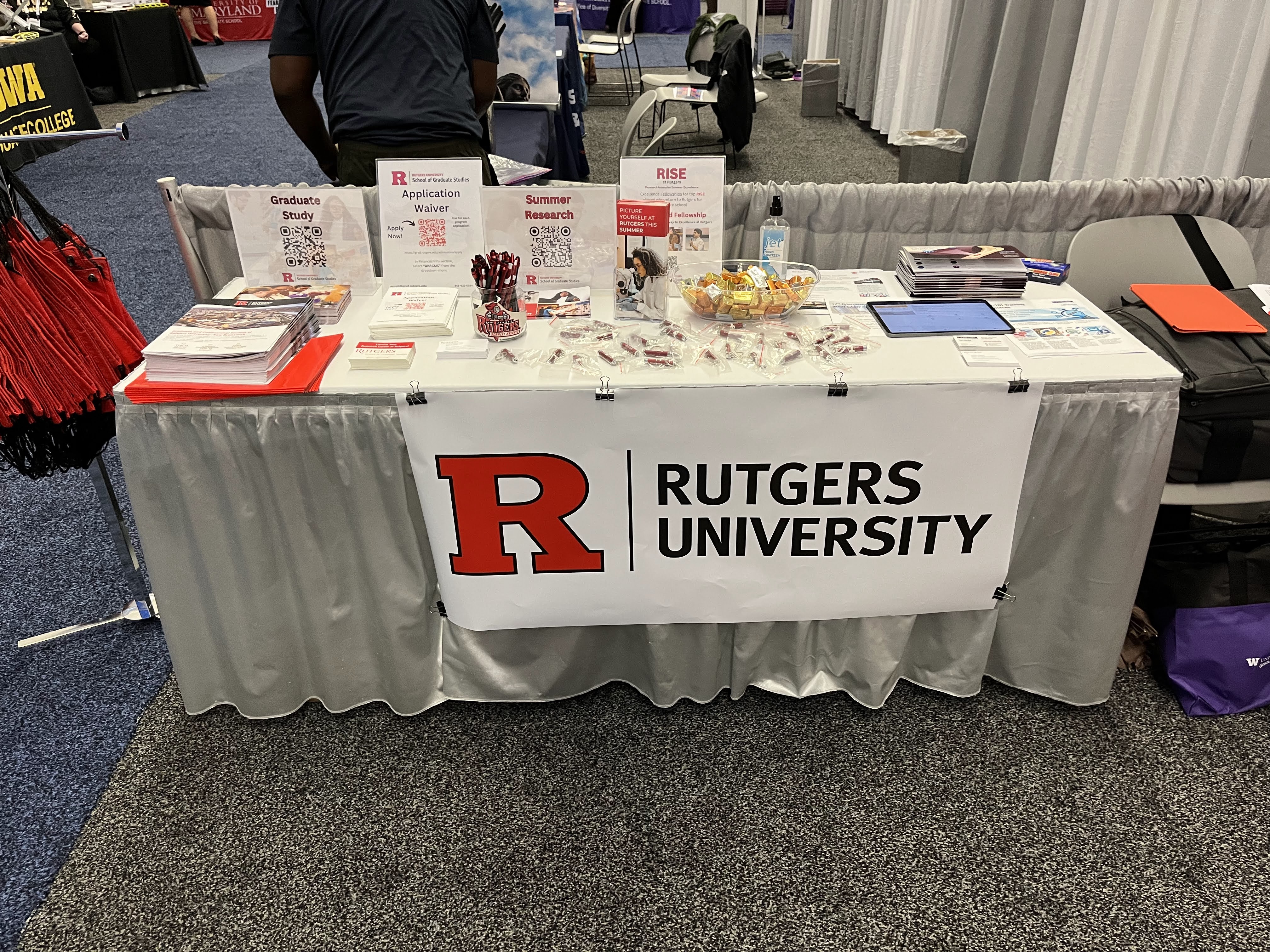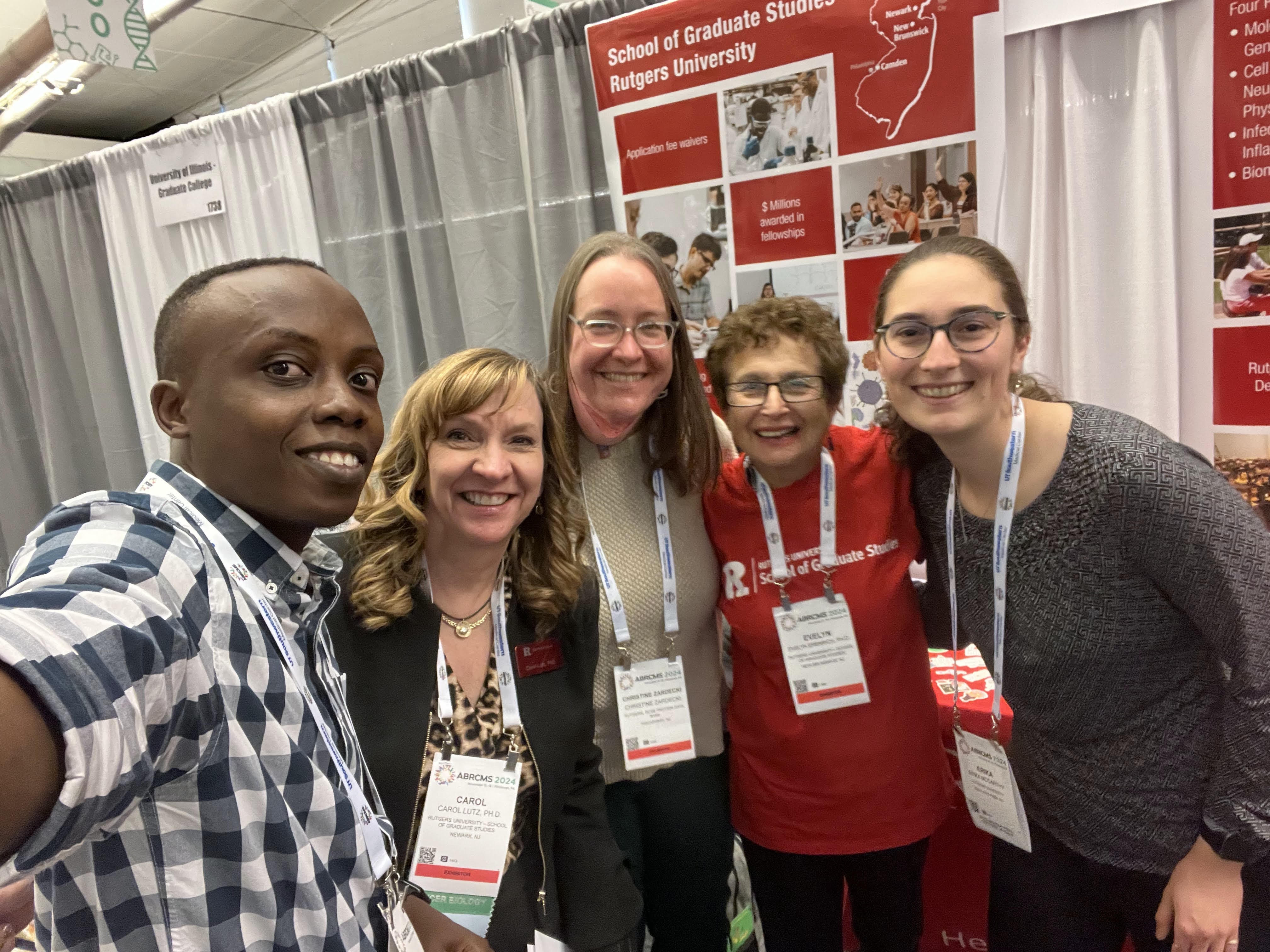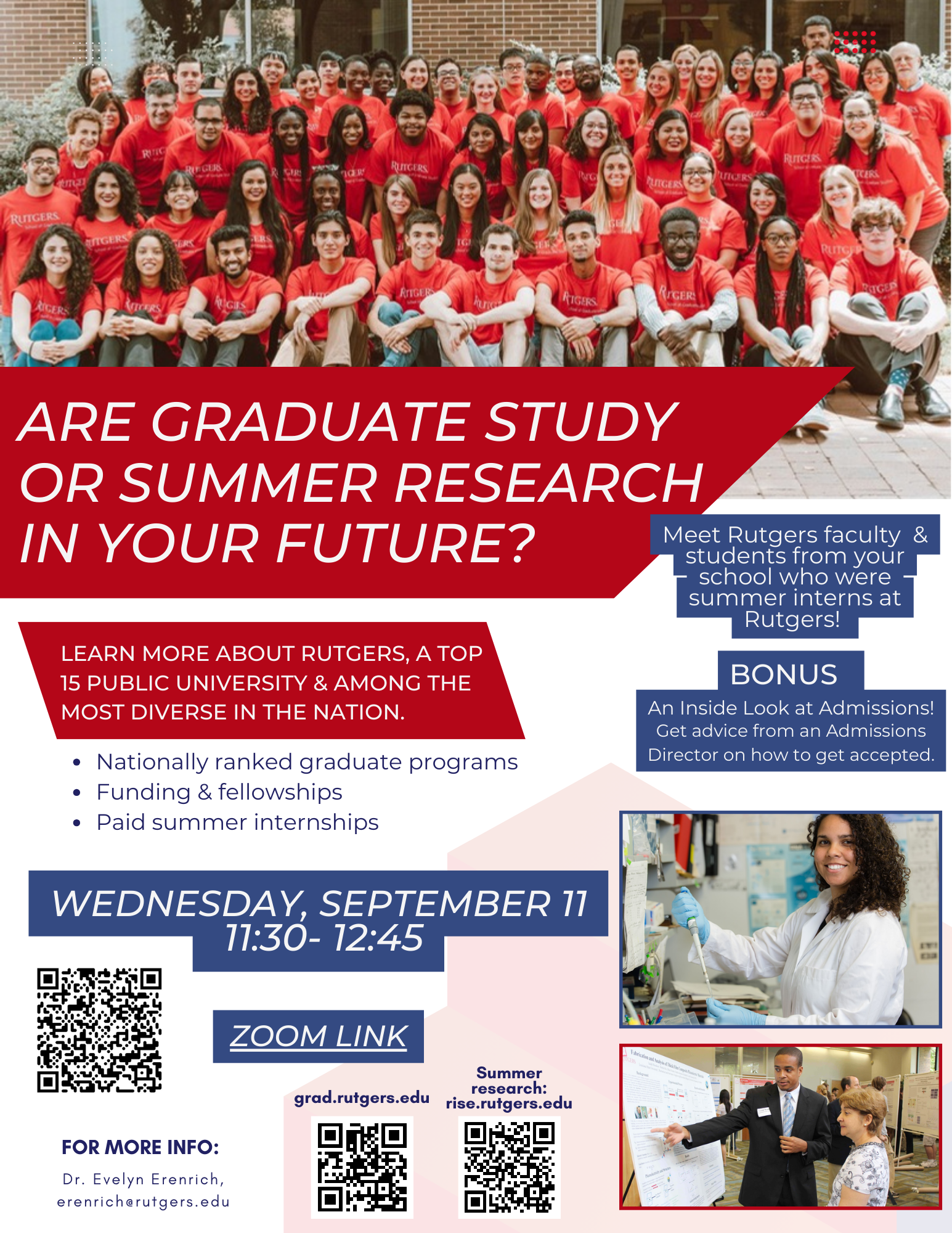Event Description
Rutgers booth 648
Find more information here
We are excited to meet you and talk about the great opportunities that Rutgers has for you at this year’s SACNAS NDiSTEM!
We had a great time at SACNAS this year. Please see a few images bellow!
Dr. Evelyn Erenrich and RISE Alumni Yaneli Guerra
Evelyn Erenrich and RISE alumni Karolina Wielowski
2024 Rutgers at ABRCMS (Annual Biomedical Research Conference for Minoritized Scientists)
Event Description
Come meet our great staff and learn about Rutgers University's summer and graduate programs. Booth 1740
Find more information here
Images from this Years Conference!



Last years team is shown bellow. See how many of them you can find this year!
2024 RISE and Gradschool Information session: UPR
Event Description
Come Join us for an online information session on RISE and graduate school at Rutgers. Zoom link

2024 RISE and Gradschool information session: UPR
Event Description
Come Join us for an online information session on RISE and graduate school at Rutgers. Zoom link

D.C. Lammerts
Graduate Program Membership
Member Members of the graduate faculty may supervise doctoral dissertations and master's theses as well as serve on or chair doctoral and master's committees. Learn more by visiting the SGS bylaws page.
Contact
Email
DCL96@rutgers.edu
Phone
848-932-9640
Location
64 College Ave
New Brunswick, NJ 08901
Designing and Delivering Effective Distance Education
Grad CareerCraft
Event Description
RAMAZAN GUNGOR, PhD.
Assistant Dean, School of Graduate Studies
Dr. Gungor will draw on his extensive experience in teaching fully online and hybrid courses, and research in distance education to provide comprehensive insights into designing and delivering effective online courses in higher education.
Topics will include:
- Key principles and best practices for online course design
- Techniques for creating engaging and interactive virtual learning environments
- Effective methods for delivering content and assessments online
- Strategies to foster student participation, collaboration, and success in online courses
Addressing challenges and overcoming obstacles in distance education
Sangmi Chung, PhD
Graduate Program Membership
Member Members of the graduate faculty may supervise doctoral dissertations and master's theses as well as serve on or chair doctoral and master's committees. Learn more by visiting the SGS bylaws page.
Contact
Email
sangmi.chung@rutgers.edu
Location
675 Hoes Lane West
RT 749
Piscataway, NJ 08854
Research
GABAergic interneuron-associated brain disorders, iPSCs, Genomics, Chimeric mice, Cell therapy
Barth Grant, PhD
Graduate Program Membership
Member Members of the graduate faculty may supervise doctoral dissertations and master's theses as well as serve on or chair doctoral and master's committees. Learn more by visiting the SGS bylaws page.
Contact
Email
barthgra@dls.rutgers.edu
Phone
848-445-7339
Location
604 Allison Road
A231
Piscataway, NJ 08854
Research
Membrane traffic and intercellular signaling in C. elegans and mammals
Barth Grant, PhD
Contact
Email
barthgra@dls.rutgers.edu
Phone
848-445-7339
Location
604 Allison Road
A231
Piscataway, NJ 08854
Research
Membrane traffic and intercellular signaling in C. elegans and mammals
Andrew Westbrook, PhD
Graduate Program Membership
Member Members of the graduate faculty may supervise doctoral dissertations and master's theses as well as serve on or chair doctoral and master's committees. Learn more by visiting the SGS bylaws page.
Contact
Location
Staged Research Building 661 Hoes Lane West
Piscataway, NJ 08854
Research
Motivation; cognitive control; catecholamines; E-1 balance; brain dynamics